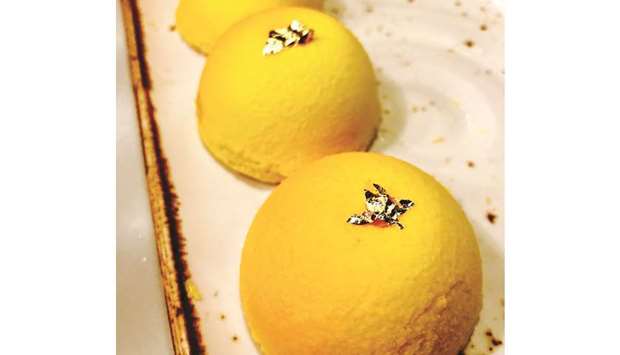This wonder fruit is not only delicious but packs in a lot of vitamins too. When the mangoes are raw they are rich in vitamin C and as they grow ripe they become rich in vitamin A. One cup serving of mangoes is 100 calories and provides 100% of your total daily vitamin C and 35 % of your daily vitamin A requirements. It also provides about 12% of your recommended daily fibre intake.
Giving someone a basket of mangoes is considered a gesture of friendship. Mango tree plays a sacred role in India – it’s a symbol of love and some people even believe that this tree can grant wishes. Some mango trees can produce viable fruit even after 300 years. Mango trees grow in tropical climates and extended exposure to temperature can kill or severely damage it. Nowadays you can get mangoes for almost 6-8 months a year due to better logistics and storage facilities and variable climatic condition in countries. However they taste best in summers and it is always fun to dig into a basket full of mangoes with friends and family.
To dispel a myth, red colour of a mango does not mean ripe, – the colour depends on the variety you choose. Certain mangos on each tree will receive more sunlight than others, with some fruits staying shaded within the tree’s canopy. In certain varieties the mangoes that receive the most sunlight will develop a red blush at the stem end. This red blush is not an indicator of maturity, quality or ripeness.
Select a mango by gently pressing it to judge ripeness. A ripe mango will give in slightly. A firm mango will ripen at room temperature over a few days. To speed up the ripening, place mangoes in a paper bag at room temperature over a few days. Once ripe, mangoes can be moved to refrigerator to slow the ripening down for several days.
In many countries, peeled mangoes are sold by street vendors on sticks. Mangoes can be enjoyed with salt, lemon juice, chat masala or chilli powder for a unique flavour experience. Mangoes also have natural tenderising properties, making them a perfect ingredient for marinades. You can add fresh diced mango to your salsa to make your very own mango salsa. Mango is a very versatile fruit and can be used to make smoothies, salads, salsa, chutney, dehydrated fruits and is served along fish, chicken or just a plain as a delicious snack.
It takes approximately four months for the mangos to mature on the tree before they are ready for harvest. During that time, the fruit laden branches of the mango tree may bow under the weight of the developing mangoes. Each fruit is harvested by hand, providing jobs for local workers and a safe passage to the packing house for the mangoes.
Mango Mousse Cake
Ingredients
For The Sponge Cake
Flour 1/2 cup
Baking powder 1/2 tsp
Eggs 2 nos
Egg yolks 2 nos
Castor sugar 1/2 cup
Unsalted butter 2 tbsp
For mousse
Mango 800gm
Sugar 1/2 cup
Orange zest 1/2 tsp
Gelatin 2 tbsp
Whipping cream 1 cup
For frosting
Whipping cream 1 cup
Castor sugar 1 tbsp
Mango 1 no
For garnish
Gold leaf to garnish (optional)
Method
For cake
Sift flour and baking powder into a medium bowl and keep aside.
In a separate bowl whisk eggs and yolks till fluffy.
Gradually add sugar and beat until pale yellow and dissolving ribbons are formed when beaters are lifted.
Fold in the flour mixture with a spatula, take care not to over mix the batter.
Add the melted butter and pour the mixture into a greased and lined cake tray mould.
Bake in a preheated oven at 400 Degree Fahrenheit for 10-12 minutes or until knife comes out clear when pricked.
For mousse
Dissolve gelatin in warm water for 10 minutes and keep aside.
Puree mango with sugar in processor and dissolve in the softened gelatin and orange zest.
Whip the cream to soft peak and combine with the mango mixture.
Thinly slice the prepared sponge cake and layer a spring form pan/glass casserole with 2-3 inch height.
Spread half of mango mousse mixture over the sponge cake.
Place second sponge cake layer on top and the remaining mousse mixture on top.
Tap gently to settle down the mixture, wrap with cling wrap and refrigerate for 2-3 hours or until the mousse is set.
For frosting, whip cream and sugar until soft peak and add diced mango.
Transfer the mousse cake to platter and frost the cake with prepared icing and garnish with gold leaf, serve cold.
* Chef Tarun Kapoor,
Culinary Mastermind, USA. He may be contacted at [email protected]

